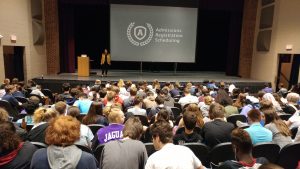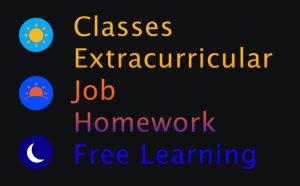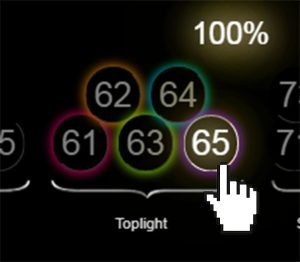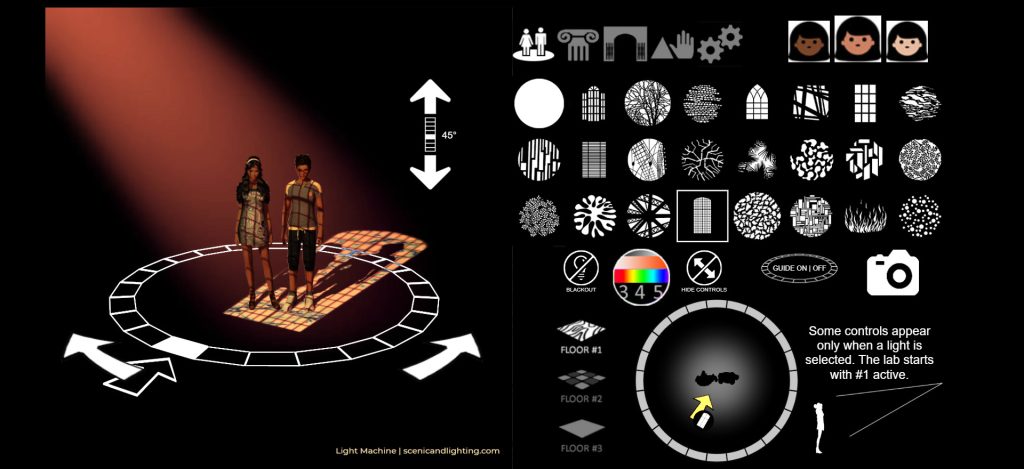Light Lab Access for You and your Students
Educators: Rent any projection media package, get a one-year subscription for you and ten students.
Universities, schools, and non-profits are complicated institutions. Anyone running a theatre program inside one of these is doing two at least jobs at once. Operating a theatre and teaching students is complicated, but aligning every activity and purchase with the wheels of bureacracy is an entire extra set of hurdles.

There are resources on this site that were created to make things simpler, especially teaching, producing shows, and making choices. You might be familiar with the light labs and educational tools available. To really learn well, students ought to be able to play with theatre space & theatre technology like they would play with paint or clay in an art class. The trouble is that theatres can be booked for lots of events. Depending on the institution, this might be rallies, admissions events, classes, or other production companies that have booked the space. A theatre is used by lots of people for lots of different things.
This activity makes it difficult to schedule time for students to be present in the space just exploring and learning freely. It’s also not a good idea to let untrained people just do whatever they want in a theatre. Theatres are dangerous to novices, and novices are dangerous to theatres. The equipment in a theatre can of course be really dangerous if not used correctly.

Regular access to a theatre is scarce. Sudents have the most time for free-learning at night, when the theatre is locked up. Classes, work, and other activities dominant their days. They tend to learn about theatre design and technology in short bursts of opportunity. It’s a rough way to have to learn.
The virtual labs on this website imitate real theatre spaces. Students can build cues as if they are sitting at a light board in a real space. They can create blocking compositions outside of the rehearsal room. They can experiment with lighting direction and gobos. They can do all of this from a very humble laptop, and they can do it in the middle of the night. Students get to play and experiment on their own schedule.
If your program is involved with Theatre Education, let me know when you request Scenic Projections for your show. On the request form for scenic projection media, you will see a checkbox: Educator Benefit. When your payment is submitted, you will receive an Educator Code with your download link. All you need to do is go to the virtual labs and register.

The Educator Code can be applied to any group subscription. It will deduct $100 from the cost. This means a ten-student Tutor subscription is free, That means no purchase orders, no request for funding; you can just do it, and provide it for your students. If you wish,though, you can apply the deduction to any of the larger group subscriptions instead.

Once you’ve completed the subscription, you and your students will have access for one year. Seats can be cleared and reassigned at any time, and if you wish, give the code to another member of your staff and they can set up the subscription as the group leader instead. For any theatre educators, a one-year group subscription is now included with the rental of any scenic projection media listed.
I’m hoping that combining services will help many of you by removing at least one hoop that you might have to jump through.

